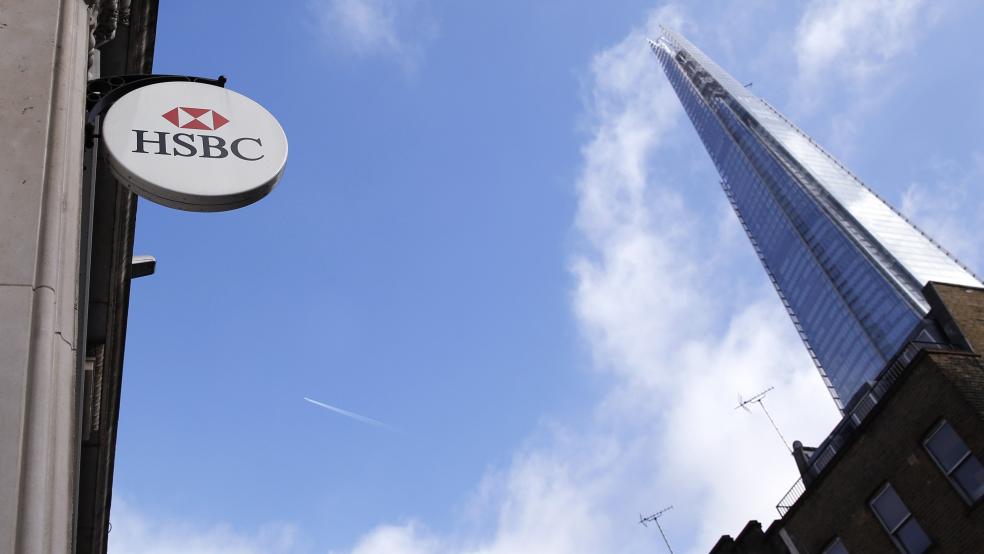British bank HSBC Holdings Plc admitted failings by its Swiss subsidiary in response to media reports it helped wealthy customers dodge taxes and conceal millions of dollars of assets.
"We acknowledge and are accountable for past compliance and control failures," HSBC said late on Sunday after news outlets including French newspaper Le Monde and Britain’s The Guardian published allegations about its Swiss private bank.
The Guardian, along with other news outlets, cited documents obtained by the International Consortium of Investigative Journalists (ICIJ) via Le Monde. HSBC said that its Swiss arm had not been fully integrated into HSBC after its purchase in 1999, allowing "significantly lower" standards of compliance and due diligence to persist.
The Guardian alleged in its report that the files showed HSBC's Swiss bank routinely allowed clients to withdraw "bricks" of cash, often in foreign currencies which were of little use in Switzerland.HSBC also marketed schemes which were likely to enable wealthy clients to avoid European taxes and colluded with some to conceal undeclared accounts from domestic tax authorities, the Guardian added.
Related: How Drug Traffickers Used HSBC to Launder Money
The reports triggered political debate in Britain ahead of a parliamentary election in May. Margaret Hodge, a senior opposition Labour Party lawmaker, said UK tax authorities had done too little.
"All the other countries have collected much more," she told BBC Radio's Today program on Monday. "We are never assertive enough, aggressive enough to protect the taxpayer."
David Gauke, a Conservative lawmaker and a junior minister in the finance ministry, criticized HSBC and said the case lifted the lid on poor banking behavior at the time.
"Clearly HSBC have got questions to answer. Clearly the behavior that is set out in these disclosures reveal behavior in 2005 to 2007 that is not what we would expect from a major bank," he said, calling tax evasion "completely unacceptable."
Related: JPMorgan to pay $99.5 million to resolve currency rigging lawsuit
The HSBC client data were supplied by Herve Falciani, a former IT employee of HSBC's Swiss private bank, HSBC said. HSBC said Falciani downloaded details of accounts and clients at the end of 2006 and early 2007. French authorities have obtained data on thousands of the customers and shared them with tax authorities elsewhere, including Argentina. Falciani could not be reached for comment. He has previously told Reuters he is a whistleblower trying to help governments track down citizens who used Swiss accounts to evade tax.
FOUR-PAGE RESPONSE
HSBC said the Swiss private banking industry, long known for its secrecy, operated differently in the past and this may have resulted in HSBC having had "a number of clients that may not have been fully compliant with their applicable tax obligations."
Its private bank, especially its Swiss arm, had undergone "a radical transformation" in recent years, it said in a detailed four-page statement. HSBC shares fell 1.5 percent by 1130 GMT (06:30 a.m. EST) on Monday, in line with a drop by the broader European banking index .SX7P. HSBC's Swiss private bank was largely acquired as part of its purchase of Republic National Bank of New York and Safra Republic Holdings, a U.S. private bank.
Related: Citigroup quietly scales back in consumer banking
The ICIJ said details of more than 100,000 clients had been obtained from more than 200 countries. It said 11,235 were based in Switzerland, 9,187 were in France, 8,844 were in Britain, 8,667 were in Brazil and 7,499 were from Italy.
The clients' accounts held more than $100 billion, including $31.2 billion from clients based in Switzerland, $21.7 billion from Britain, $14.8 billion from Venezuela and $13.4 billion from U.S. clients, the ICIJ said. HSBC said the number of accounts in its Swiss private bank was much lower, however. It could not explain the difference. HSBC said its Swiss private bank had 30,412 accounts in 2007, which had fallen to 10,343 at the end of last year.
HSBC said it was cooperating with authorities investigating tax matters. Authorities in France, Belgium and Argentina have said they are investigating. Britain viewed criminal prosecutions as difficult to achieve and the tax office had focused on taking civil action, minister Gauke said. The UK tax office said it had brought in 135 million pounds ($205 million) in tax payments, interest charges and penalties after working through the HSBC client list.
Switzerland has charged former HSBC employee Falciani with industrial espionage and breaching the country's secrecy laws.
Some of the details of the list have been released before. The names of 2,000 Greeks with HSBC accounts was made public in 2010 and dubbed the "Lagarde List" after former French finance minister Christine Lagarde. France passed the names to Greece to help it crack down on tax evasion.



